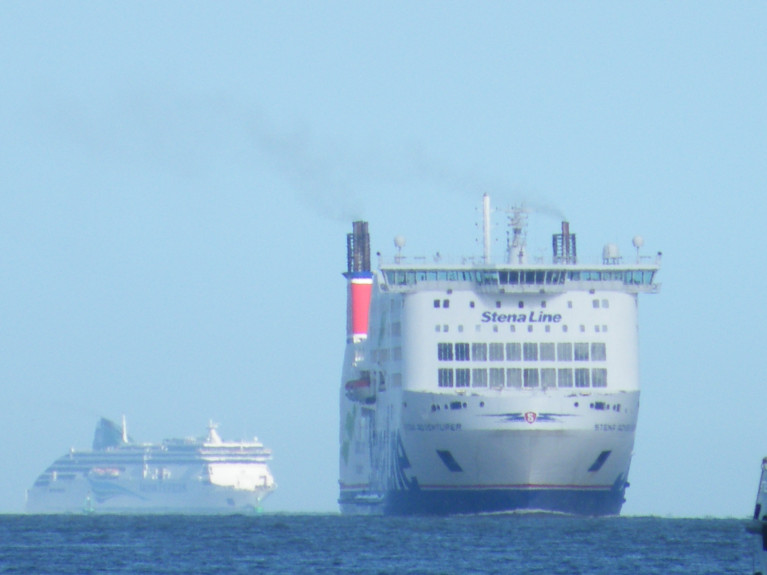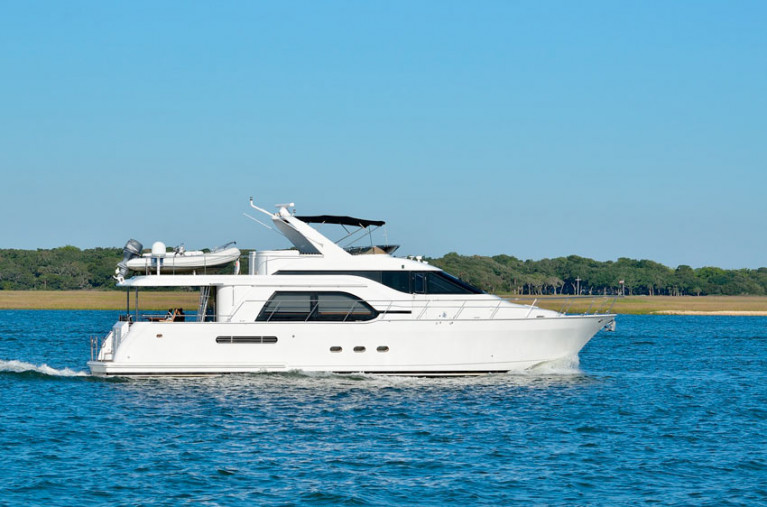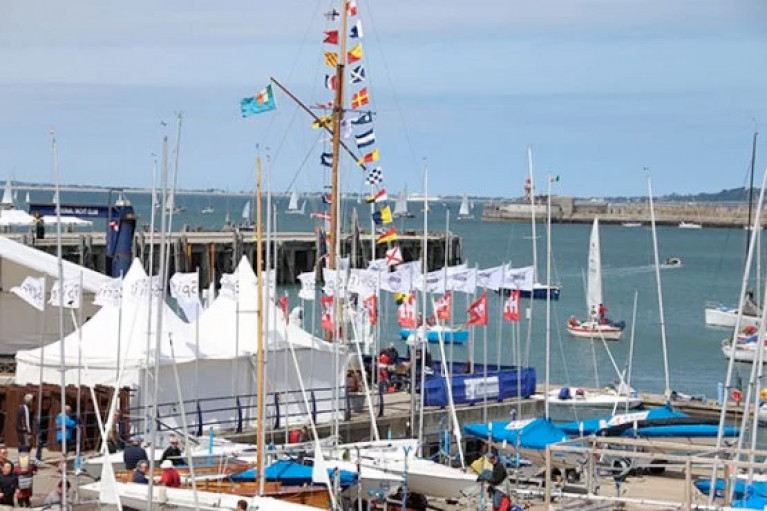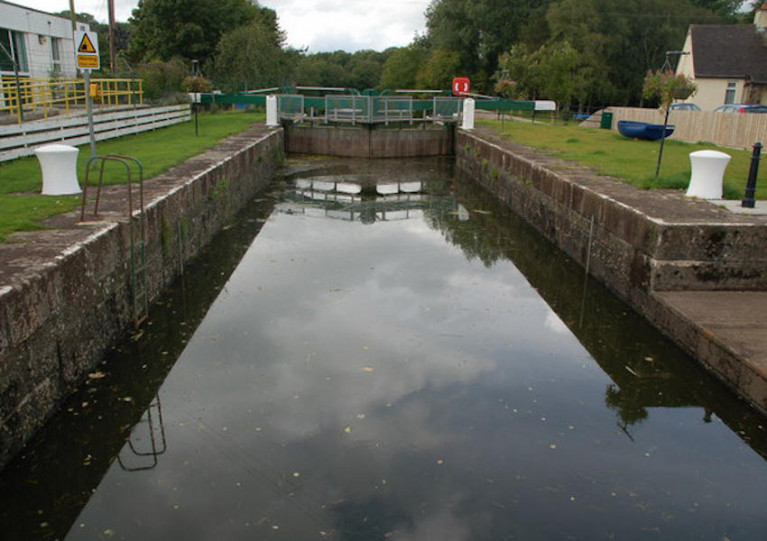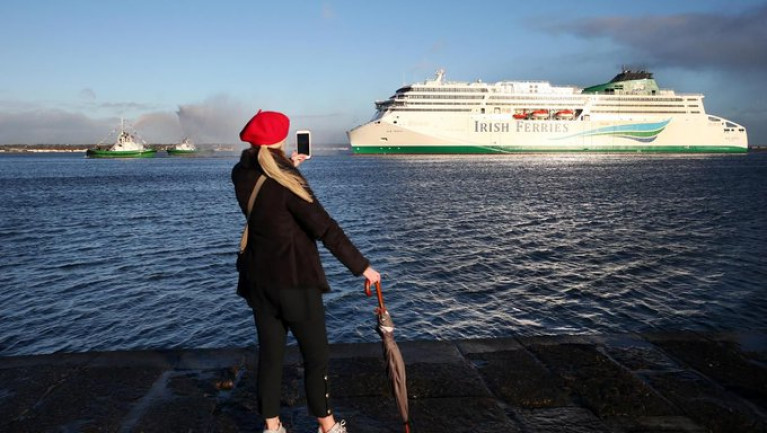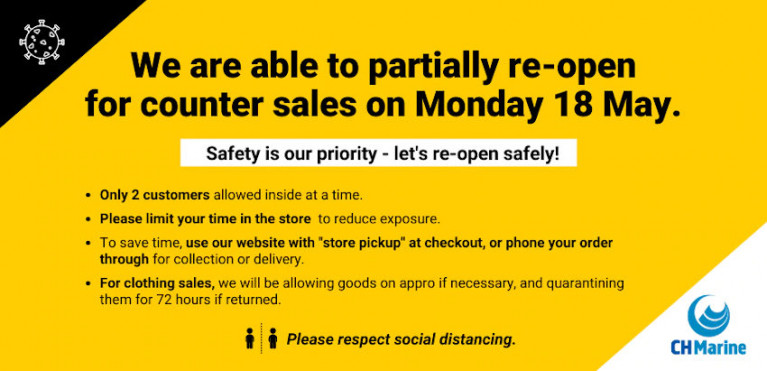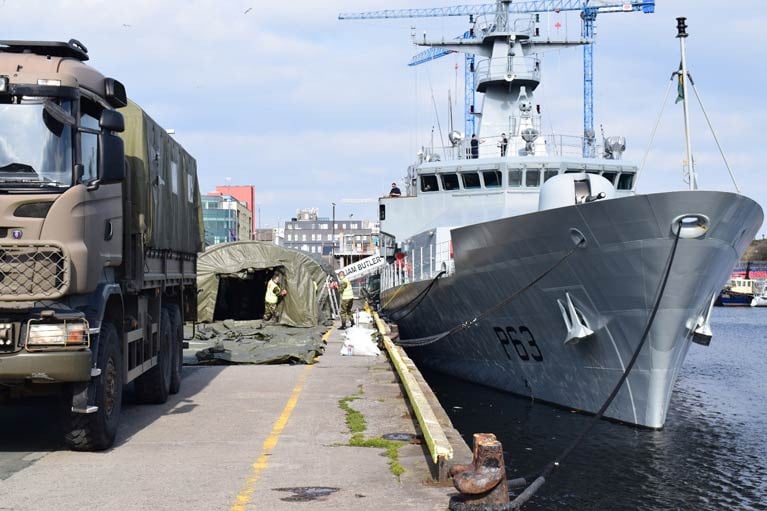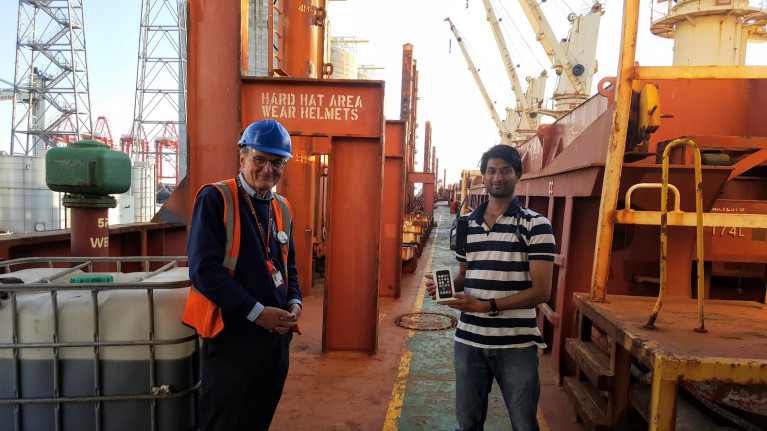Displaying items by tag: COVID19
Ferry Operator Stena Announce New Measures Put in Place to Ensure Safe Travel this Summer
A set of safety measures announced by Stena Line, given the potential easing of lockdown restrictions and the re-emergence of non-essential travel, is aimed at ensuring ferry travel is the safest form of public transport.
Social distancing, fog machines, fresh sea air inside the ships and the recommended wearing of face coverings, are all seen as key to reassuring customers about the future of ferry travel (see safety video) as countries reopen their borders in the coming weeks.
Stena Line’s ferries have played a vital role during the pandemic keeping supplies of food, medicines and equipment moving across Europe. As people look forward to being able to travel this summer, Stena Line has been receiving an increase in passenger bookings. In advance of the return of sea corridors reopening to tourist travel the company has been finalising extensive new safety measures to combat the spread of COVID-19 and ensure a safe and seamless journey:
- Easier social distancing - ferry travel is the only form of public transport where passengers can social distancing easily. Stena Line has undertaken risk assessments, which have capped the numbers of passengers on each crossing to guarantee adequate space.
- Fresh sea air is now being circulated into the air filtration systems on all ferries.
- New fog machines are being used to sanitise communal areas and cabins on the ferries and alongside the continuous cleaning routines being undertaken throughout the ships.
- From today, Monday 15th June, face coverings are recommended for all passengers and crew on Stena Line vessels, and in terminals, on all routes on the Irish Sea and the North Sea, where social distancing is difficult to achieve, such as in stairwells, lifts and in corridors.
“Ferry travel is the only mode of transport where you can social distance, so it is no surprise that we are now seeing an increase in bookings due to the expected reduction in lockdown restrictions. In advance of the return of international travel we now feel the time is right to tell people about our new anti-COVID-19 measures and reassure them that ferries provide the safest mode of transport for travel passengers and freight drivers. The safety of our passengers and crew is always a top priority for Stena Line.” Says Stena Line’s CEO Niclas Mårtensson.
As part of Stena Line’s safety plan to prevent the spread of the Covid-19, an extensive risk assessment identified three key stages of the customer journey to focus on:
A. During check-in at the Terminal.
B. While onboard the vessels.
C. During embarkation and disembarkation
“By providing the ability to social distance the whole journey, our big, bright and spacious ferries have plenty of fresh sea air, both inside and out, and offer the safest way to travel for people who want to take a break after the long lockdown” says Niclas Mårtensson, CEO of Stena Line.
Bosses of the ferry industry, have ruled out increasing their services between Ireland and France in the coming months and have even indicated that passenger numbers on their routes could be reduced to facilitate social distancing.
There had been speculation that ferries could receive a boost in passenger numbers as more people opt to travel by sea rather than by air over Covid-19 fears.
Skibbereen resident David Puttnam also told The Southern Star’s Coronavirus Podcast this week that the idea of another passenger ferry from Cork should probably be ‘looked at again’ in light of the number of people who are unlikely to use air travel in the foreseeable future.
But Brittany Ferries, who operate the Cork to Roscoff route, have already said that they have no plans to extend services.
‘The company is looking forward to welcoming passengers back onboard the Pont-Aven once it is in a position to re-open its Cork to Roscoff route,’ said a spokesperson.
They have already cancelled all passenger sailings from Ireland to France and Spain up to June 15th.
Christophe Mathleu, chief executive officer of Brittany Ferries, said that difficult decisions have to be made to ensure those services comply with WHO guidelines and our the company’s own safety protocols.
‘Passenger numbers will have to be considerably limited and several on board services will be subject to change to ensure they are safe but still enjoyable,’ he said.
The company’s decision earlier this year to close down its Cork to Santander route – after just two years – shocked many in the tourist industry.
For much more on this story effecting the Munster region, click here.
Ferries Face 'Mandatory' Masks on Stena Ships Whereas Already 'Advisable' on Irish Ferries
Operator Stena Line from next week will introduce the mandatory wearing of face coverings for passengers as distinct to Irish Ferries last month's advisory to don such health related attire, writes Jehan Ashmore.
The Covid-19 related measures are intended to safeguard both the health of passengers and crew in addition to ensure maximum safety to those travelling by ferry. Both operators have also issued information on passengers, bookings, amendments and cancellation policies in these times of Covid-19.
Stena Line has said from next Monday, 15 June, the wearing of face coverings will be mandatory whilst in ports or onboard their vessels though with exceptions.
Exceptions to this rule are children under the age of three and anyone with a breathing condition, illness or disability that prevents or hinders them from wearing a face covering.
As for those taking night sailings that arrive on the morning of Monday 15 June, face coverings will be required from departure the night before on Sunday, 14 June.
For furher information see Stena Line homepage and for answers to FAQ's which can be consulted on the operator's Coronavirus information page.
Likewise, Irish Ferries which too is constantly monitoring a rapidly evolving situation in relation to Covid-19 issued an information update of 29th April, which advised passengers must have a face mask / face covering when travelling with the Irish ferry company.
As part of Irish Ferries FAQ click here, the issue of masks according to the Irish authorities now recommend in the wearing a cloth face covering in situations where it is difficult to practice social distancing.
Additionally, it is now mandated by the French Authorities for passengers to wear a face mask when onboard ships in French waters and in Cherbourg port (with children under 11 years exempt).
As Afloat reported earlier today Irish Ferries W.B. Yeats returned to the Irish capital on completion of the first 'cruiseferry' operated Dublin-Cherbourg sailings of the summer which was to start in March but was delayed to the Covid situation. The service finally began on Tuesday with an overnight arrival to Cherbourg yesterday.
In the meantime up to this week, the year-round operated Ireland-France route was maintained during the winter and was extended into Spring. During these months the route was covered by the 'economy' ropax ferry Epsilon.
Further important travel information from the Irish Government's Dept. of Foreign Affairs is available here.
Cruisers From Abroad Still Banned From Irish Ports
Boaters are reminded that leisure cruisers and other personal vessels from abroad remain banned from entering ports here, despite the latest relaxation of coronavirus measures.
Ireland’s sailing community has hailed the wider return to sailing heralded by the start of Phase 2 of relaxing coronavirus lockdown restrictions from today, Monday 8 June.
And Irish Sailing has published a guideline document to all sailors and boaters, including those who have not yet done so, for getting back on the water.
But under the heading for transport and travel in the Government’s list of Phase 2 public health measures, it states: “The arrival of personal non-national maritime leisure vessels is banned (with exceptions such as ‘port in a storm’).”
The message is, for now, that cruising should keep local for the health and safety of all — and the hopeful further loosening of restrictions in three weeks’ time.
From Land To Sea: Fly Your Flag At Dun Laoghaire Harbour
As boating returns to Dun Laoghaire upon the relaxing of coronavirus restrictions, the local authority is asking everyone of all ages to make their own flag with a message of hope for the future.
All are invited to tell their own Covid-19 story with their flags which will be flown from the masts of boats among Dun Laoghaire’s sailing community.
These boats will set sail in convoy on a day of solitary this August, when Ireland is set to emerge from the fifth and final phase of health restrictions.
Friday 10 July is the deadline to submit your flag and completed submission form c/o Sandra Kelly, Community Department, County Hall, Marine Road, Dún Laoghaire — and DLRCoCo has provided some handy tips to help you get started.
Following more easing of Covid-19 restrictions announced by the Northern Ireland Executive, plans are being made by Waterways Ireland to reopen its navigations north of the border — the Erne System, Lower Bann and on the Shannon-Erne Waterway — to boating from next Friday 29 May.
The cross-border body for Ireland’s inland waterways says it is working to roll out health and safety procedures and protocols to ensure the safe return of both staff and boaters to these navigations.
Private boaters undertaking short trips on the water, as permitted under the new restrictions, are reminded to proceed with caution as navigations and their facilities have not been fully maintained since lockdown began in late March.
“It will take time to reopen the above navigations,” Waterways Ireland said in a statement. “We expect they will reopen on May 29th.
“Waterways Ireland’s locks and service blocks will remain closed in line with the five-step roadmap to recovery [in Northern Ireland]. We recognise the situation is constantly changing.”
It added that updates prior to reopening will be made via marine notices, on the Waterways Ireland website and via social media channels.
The Inland Waterways Association of Ireland (IWAI) yesterday welcomed to the return of boating to Lough Erne with a list of recommendations to keep everyone safe on the water.
Ferry Check: 'It's Unfair' - Customers Claim Operators Are Taking Payments for Trips they Cannot Take
Customers of ferry operators have complained that outstanding payments are being deducted for trips that, due to travel restrictions, they are unable to take.
While ferries continue to sail between Ireland, the UK and France, both to maintain supply chains and cater for essential journeys, the Irish Government is advising against all non-essential travel "until further notice".
That puts leisure passengers with imminent sailings in a bind.
Last November, for example, customer Padraig Murphy says he booked June sailings to France with Irish Ferries for two adults and five children.
He paid a €100 deposit, with the balance of €1,413.50 due on April 23.
"When Covid hit, we contacted Irish Ferries on March 23 to see what the options were. We were advised that nothing had changed and they would contact us if there were any changes..."
"Clearly everything did change."
For more from the Independent.ie including a response from Irish Ferries. In addition to how Brittany Ferries and Stena Line are dealing with the impact of Covid19, click here.
CH Marine Counter Sales Partially Reopening This Week
“Safety is our priority — let’s reopen safely” is the message from CH Marine, which has announced its stores will partially reopen for counter sales with the start of the first phase of relaxing coronavirus restrictions from tomorrow, Monday 18 May.
Only two customers will be allowed inside at any one time, and customers are asked to limit their time in store to reduce exposure.
To save time, customers are invited to order on the CH Marine website, choosing the ‘store pickup’ option at checkout, or to phone orders through for collection or delivery.
For clothing sales, CH Marine says it will be allowing goods on approval if necessary, and quarantining them for 72 hours if returned.
CH Marine’s lifejacket and liferaft servicing department remains open as usual as an essential service.
Naval Service patrol ship LÉ William Butler Yeats left Dublin today to return to routine security operations as Covid-19 community testing centres on ships are stood down.
Six ships have rotated duty in the three ports of Dublin, Galway and Cork since March 15th as a support to the Health Service Executive in providing field hospitals for testing.
The nine-week operation involved almost 6,000 tests for the HSE and was known as "Operation Fortitude", according to the Defence Forces press office.
It said the Naval Service has "completed a handover with their Army colleagues" who "will now operate the COVID19 testing centre at the Aviva Stadium in Dublin as the Defence Forces continue to assist the HSE".
Maritime Groups in Liverpool Assist Stranded Indian Seafarer Back in Touch with Family
Across the Irish Sea an Indian seafarer stranded thousands of miles from home because of the Covid-19 crisis has been able to reconnect with his family thanks to the help of two Liverpool-based maritime organisations.
Ecumenical charity Liverpool Seafarers Centre launched a social media appeal after hearing about 3rd Officer Nishanth Sadaram who had lost touch with his family after his mobile phone was damaged by seawater.
Mr Sadaram arrived in Liverpool aboard MV Seamec Gallant, a bulk carrier transporting grain from Argentina to the UK. Restrictions imposed due to the Covid-19 pandemic meant he was unable to leave his vessel to buy a replacement phone.
After reading about Mr Sadaram’s plight on Twitter, a member of Propeller Club Liverpool rose to the challenge and immediately got in touch to donate an Apple iPhone to the stranded seafarer.
John Wilson, Chief Executive of Liverpool Seafarers Centre, travelled to the Port of Liverpool to personally deliver the handset to a very grateful Mr Sadaram.
Mr Wilson said: “The smile on Nishanth’s face when I handed over the iPhone made it abundantly clear how much this generous gift from the Propeller Club means.
“The current crisis has left large numbers of seafarers in a worrying and precarious position, with all vessels on lockdown and no shore leave permitted. Travel and quarantine restrictions mean many are unable to return home when their contracts end, leaving them thousands of miles from home and their families.
“We all now take phone calls, email, messaging apps and social media for granted, but if seafarers lose that link with home it adds extra pressure to an already stressful situation. This gift will allow Nishanth to keep that vital connection. It’s another shining example of the generosity of this city’s residents, and of the respect Liverpool has for the critical work done by seafarers everywhere.”
Mr Sadaram added: “Thank you so much for the iPhone. It has saved my life by helping me communicate with my mother, brother, cousins and friends back home during Covid-19 times.”
Adam Whittle, Propeller Club Liverpool President, said: “The Propeller Club is at the heart of a proud maritime community in Liverpool, and as such we are so pleased that we were able to assist. In these dark times we are all more reliant on seafarers than ever before, and so being able to extend the hand of welcome, generosity and support is vital.
“Many of our members are both serving and former seafarers, and so know first hand how hard it can be for crew today. We very much hope the phone allows the particular seafarer to stay in touch and feel closer to their family and loved ones at home, and we are very pleased to be supporting the seafarers centre here in Liverpool.”
Liverpool Seafarers Centre has been overwhelmed by the public’s response to its recent appeals. Donations made through the charity’s website and by post are being used to provide other visiting seafarers with mobile handsets and internet-enabled SIMs, allowing them to speak to friends and family at home.
The organisation is also looking to purchase MiFi devices, which create an internet hotspot and allow up to 20 people to go online simultaneously. Each device costs £450 and Liverpool Seafarers Centre is aiming to buy 10 of the units to loan to vessels whilst in port.




























